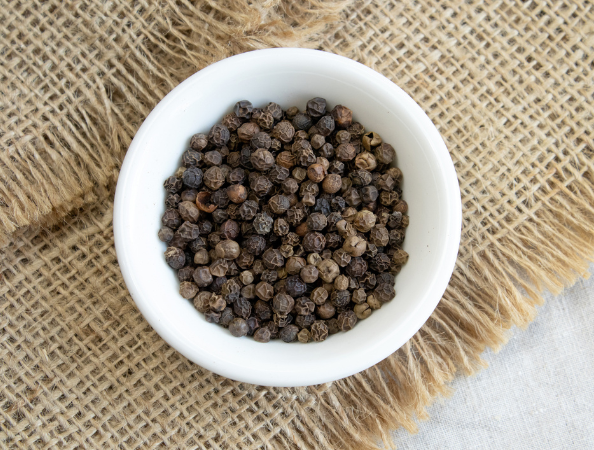The spice that takes care of the brain, prevents inflammation and improves digestion

Pepper is popular for its two uses: in cooking and in traditional medicine. This spice is characterized by its fresh smell and spicy taste, attributes that add a unique touch to meat, chicken, fish, among other foods.
Its applications go beyond the culinary field, as its benefits in different areas of the body are studied. Pepper is recognized to have anti-inflammatory, antibacterial, antioxidant and stimulant properties; although these effects vary depending on the variety, the most commonly used is black pepper.
Types of pepper and their properties- Black pepper: This is the spiciest of all. It provides vitamins A, B3, E and B6, iron, calcium, fibre and potassium.
- White pepper: it is less spicy; it contains vitamins A, B, C, D and K, calcium, iron, proteins, iodine, zinc and magnesium.
- Green pepper: is the grain of immature (green) pepper, preserved in vinegar or salt water; it provides proteins, calcium, iron, magnesium, potassium, phosphorus, riboflavin, vitamins B6 and C and piperine.
- Red pepper: This is the mature grain that is usually found in preserves; it is rich in vitamins A, B6, C and K, potassium, magnesium, zinc and fiber.

There are several types of pepper. Photo: iStock
- Reduces oxidative stress: Piperine, whose properties are antioxidant, fights free radicals in the body and reduces cell damage.
- Improves digestion: consuming pepper stimulates the production of gastric juices, which promotes better digestion and combats indigestion and flatulence.
- Improves blood circulation: thanks to its capsaicin content, pepper helps dilate blood vessels to promote blood flow. This, in turn, benefits cardiovascular health.
- Prevents inflammation: some varieties of pepper are used as an antiseptic and analgesic, preventing muscle pain.
- Improves brain health: Since piperine protects cells from free radicals, it also increases the levels of certain neurotransmitters, which improves brain function.
Although pepper offers multiple benefits, it is recommended to consume it in moderation. If you consume too much, you are likely to experience symptoms such as heartburn or irritation of the tongue, according to the Argentine Pediatric Society. To alleviate these discomforts, it is suggested:
- Drink water: Water can soothe the irritating sensation caused by pepper.
- Eat dairy products: milk, yogurt and cheese reduce the burning sensation in the stomach. Combine them with a slice of whole wheat bread to protect the digestive mucosa.
While pepper is considered safe to consume, it is essential to measure the amounts added to recipes. It is generally recommended to eat a maximum of 1/4 or 1/2 teaspoon per day.
Please note that if you have any questions or changes in your diet, it is important to consult with nutrition and health experts to adapt the consumption of this spice to your personal needs.
The Universal (Mexico)/ GDA.
The ancestral plant that helps improve memory, fights dementia and strengthens the brain More news in EL TIEMPO *This content was rewritten with the assistance of artificial intelligence, based on information from El Universal (GDA), and was reviewed by a journalist and an editor.
eltiempo






